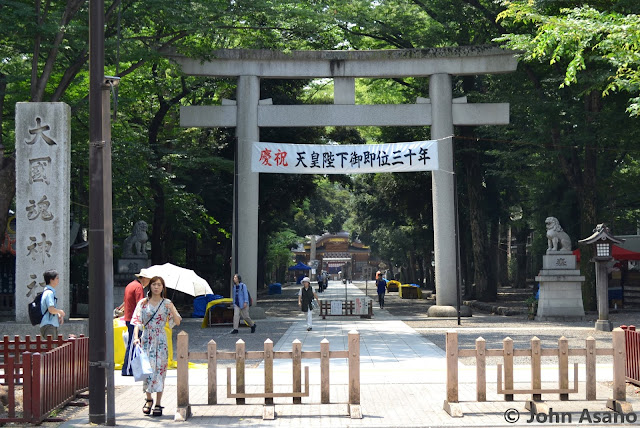Tokyo Racecourse, which is run by the Japan Racing Association (JRA), is a fun family orientated travel destination just outside of central Tokyo that is a great escape from the big city. A visit here is like taking a day trip from the hustle and bustle of central Tokyo, whisking you away to a thrilling location that feels like you are miles away in a totally different part of the country.
Back home in Australia, a day at the races means men in suits, ladies in gorgeous dresses and fascinators (hats), and a chance to mingle with the rich and famous for a day. In Japan, it is more of a family affair with kids and cute mascots. There is definitely something for everyone at Tokyo Racecourse.
Entry to the theme park-esque venue is only 200 yen for live race days and FREE on days with no races, and includes access to all the ride and attractions for FREE. There are a lot of staff on hand at each attraction to ensure that everything goes smoothly and everyone is safe and looked after with the greatest of care.
There are lots of entertaining spots to enjoy for the day at Tokyo Racecourse including the various activities and attractions below:
Fuji View Grandstand & Grassed Area
A massive modern grandstand that offers views of the iconic Mount Fuji on clear days, it is the perfect place to take in a race and feel the excitement and atmosphere of a day out at the races. Bring a picnic blanket and your lunch box and you can relax on the grassed area near the grandstand to admire Japan’s best thoroughbreds in action.
Infield Amusement Playground
Follow the underground passage under the track to kids heaven at the infield amusement playground which includes a huge blown up Turfy (JRA mascot) jumping castle, JR-dome adventure playground, mini Shinkansen ride and food fair with a different theme each week.
Hiyoshigaoka Park
The kids will love the playground equipment at this cool park which includes a huge wooden pirate ship, jungle gym, grass lawn to play on and sand pit.
Horse Riding Experience
Jump on the back of a former racehorse in the paddock to experience what it is like to ride these majestic animals.
Horse Patting (Uma no Fureai)
A great place for the kids to stroke the horses and get comfortable with these beautiful warm animals. There are little ponies for the little ones, and bigger horses for the big kids. This is a fantastic spot for that golden photo opportunity.
Horse Carriage Ride in Rose Garden
Enjoy a slow stroll around the rose garden in a horse-pulled carriage through the Zelkova-lined street. You will feel like royalty with this relaxing ride which comes complete with driver dressed in elegant attire.
Horse Viewing in the Parade Ring
Catch a glimpse of the race horses and jockeys close up before the race. This is the place where the punters will be studying the horses before the race to try and pick a winner.
JRA Racing Museum
Learn all about the storied-history of horses and horse racing in Japan, including a hall of fame of Japan’s most famous horses.
Restaurants & Food Court
One of the hardest decisions you will have to make at Tokyo Racecourse is what to eat. With a wide-range of restaurants located all around the venue you have some great choices including some of my personal favourites such as Coco Ichibanya and Hanamaru. If you are on a budget, you are also allowed to bring your own food and drinks into the venue.
Umajo Spot
The Umajo spot is a women’s-only café at Tokyo Racecourse designed to appeal to younger women. Here female visitors can enjoy special horse-themed goodies and drinks while learning all about the betting process in a cute kawaii space.
Japanese-style Garden
Enjoy the seasonal beauty of this quiet and peaceful Japanese-style garden located behind the horse viewing parade ring. In spring, the garden comes alive with cherry blossoms, and in fall, there is colorful autumn leaves to admire. There is also a large pond featuring Japanese koi (carp) and plenty places to sit and soak up the beauty and atmosphere.
Horse Show
Watch some equestrian elegance here with a horse show featuring acrobatics, trotting and beautiful dance performances by the horses.
Future Events
On November 24th, 2019, the Japan Cup, a big Group 1 race will be held at Tokyo Racecourse. This international event will feature horses from around the world and is one of world racing’s richest purses.
In conjunction with the Japan Cup on November 24th, from 9:00 - 16:00, there will be the following events:
(1) Special novelty items will be gifted to visitors on answering a simple questionnaire.
(2) There will also be a stamp rally and those who participate and complete it, will get a discount coupon of 1000 yen that can be used at any of the food stalls or presented with a novelty item.
Note: These events are only for overseas visitors to Japan.
For more information about Tokyo Racecourse, visit the JRA website.
Tokyo Racecourse Information
Address: 1-1 Hiyoshi-cho, Fuchu-shi, Tokyo, 183-0024
Entry fee: ¥200 (free for children under 15) on live race days. FREE for all on non-race days.
Open hours: 9am-5pm on race days
Weekdays: 10am-noon, 1pm-4pm (except Mondays, Tuesdays, holidays)
Website: japanracing.jp
Access
Take the Keio Line from Shinjuku and either get off at Fuchu Keiba Seimon Mae Station or Higashi-Fuchu Station. The walk from Fuchu Keiba Seimon Mae Station to the main gate is only 2 minutes, while from Higashi-Fuchu Station, it is a 10-minute walk.




























